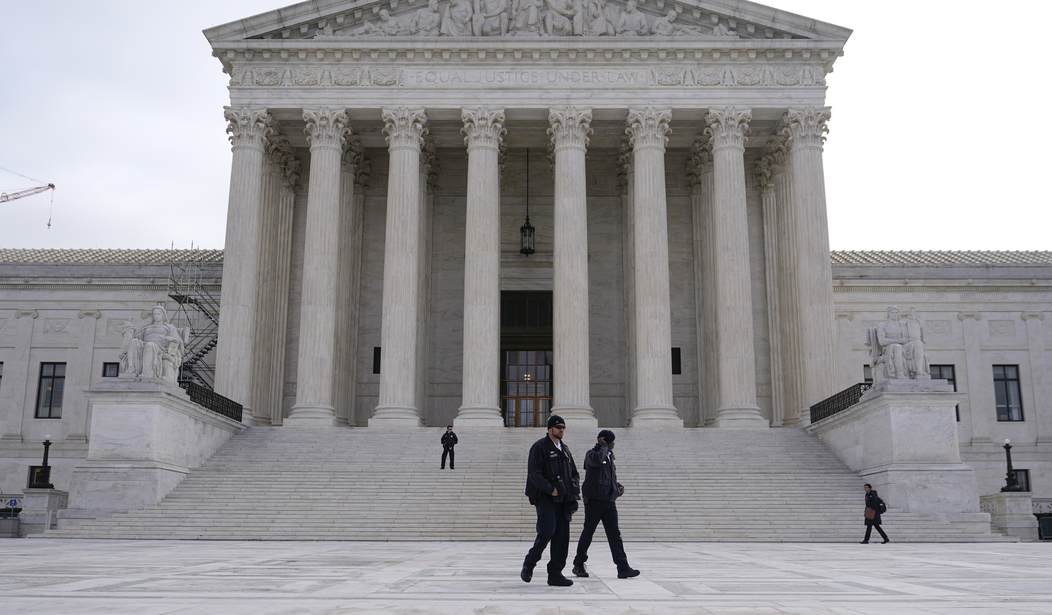The Goldwater Institute is a leading free-market public policy research and litigation organization that is dedicated to empowering all Americans to live freer, happier lives. We accomplish real results for liberty by working in state courts, legislatures, and communities nationwide to advance, defend, and strengthen the freedom guaranteed by the constitutions of the United States and the fifty states.
The following column is by The Goldwater Institute's Vice President for Legal Affairs Timothy Sandefur.
When Lena Sutton lent her car to her friend Roger in February 2019, she didn’t know that Roger planned to use it for something illegal: transporting drugs. She only found that out when Alabama police officers pulled him over for speeding and, after discovering the contraband, confiscated Lena’s car.
She had nothing to do with the crime—but that didn’t matter. Under the legal theory of “civil asset forfeiture,” prosecutors can seize cash, cars, or even entire houses that are involved in criminal activity, even if the owners had no idea their property was being used illegally.
What’s more, Alabama officials declared that although Lena was entitled to a hearing where a judge would decide whether cops could keep her car, the police wouldn’t let her use her car while she waited for that hearing to take place. That’s a concept lawyers call pendente lite—a Latin phrase meaning “during the lawsuit”—and it’s a question the U.S. Supreme Court will soon consider. It’s taken up Lena’s case to decide whether police can not only take property from innocent owners, but also hold it during the months, or even years, that it takes for a judge to decide whether to approve the confiscation.
Civil forfeiture is a bizarre practice. It originated in ancient English law, which held that animals or inanimate objects themselves could be “punished” for crimes by being seized by the king. Forfeiture was rarely used in America until being revived in the 1980s by prosecutors who saw it as a way to fight the drug war without having to give accused criminals the expensive or time-consuming due process that criminal law requires. Why go through the trouble of bringing an accused drug dealer to trial, when it’s easier to just confiscate his yacht? If he wants it back, he must file a lawsuit—and that requires waiving legal protections, such as the Fifth Amendment right against self-incrimination, that apply in criminal cases. Moreover, the U.S. Supreme Court held in 1996 that innocence is no defense against forfeiture—even if the owner is even aware a crime was committed, property can be seized.
Recommended
In practice, yachts are rarely forfeited. The typical forfeiture case involves about $1,300 and the victims aren’t drug kingpins. They’re usually lower-income individuals who carry cash in amounts police consider “suspicious,” or people who, like Lena Sutton, make the unfortunate decision to associate with lawbreakers. More than 80 percent of forfeiture cases aren’t accompanied by any criminal conviction, and, given the difficulty—and legal risks—of suing to get back seized property, only about 20 percent of people even try.
That benefits law enforcement agencies, who can keep the proceeds of forfeitures. And it means that, instead of obtaining all their funding through tax dollars—which involves the troublesome matter of asking the voters’ elected representatives to approve a budget—these departments can fund themselves off of “criminals,” free from democratic checks and balances. It’s a form of taxation without representation.
Perhaps worse than all of this is the way forfeiture undermines the legitimacy of law enforcement itself. When citizens see officers as profit-seeking predators rather than disinterested protectors, it generates resentment that can grow into what sociologists call “legal cynicism.” People become reluctant to call the police when in need, relying on vigilantes, instead—and they begin to sympathize with lawbreakers, sometimes helping them conceal their crimes. There’s nothing new about this: in 1790, James Wilson, a signer of the Constitution, warned that forfeiture is so unjust that people view it with “sentiments of pain and disgust”—sentiments which eventually lead them to engage in “a deadly feud with the state.”
The pendente lite principle adds still more injury: it lets officials keep property before that confiscation has even been deemed legal—which can take a long time. That means that even if the owner ends up winning her case and getting her property back, the delay may have rendered it worthless. In one case, prosecutors tried to seize an entire company pendente lite, promising that they’d return it if the court later decided the taking was invalid. The court rejected that notion, pointing out that “the business itself would at that point be drained of any good will by the summary closing, because the old customers would by then have resorted to new places.”
Government can’t keep accused people in jail pendente lite without first proving that keeping them in jail prior to trial is necessary to prevent them escaping. And the same rule should govern forfeiture cases in which property is “accused” of a crime. Our legal system promises at least a basic minimum of fairness for those who’ve committed crimes—and those who haven’t, like Lena Sutton, deserve no less.
Timothy Sandefur is the Vice President for Legal Affairs at the Goldwater Institute, which has filed a brief urging the Supreme Court to protect Lena’s rights.

























Join the conversation as a VIP Member